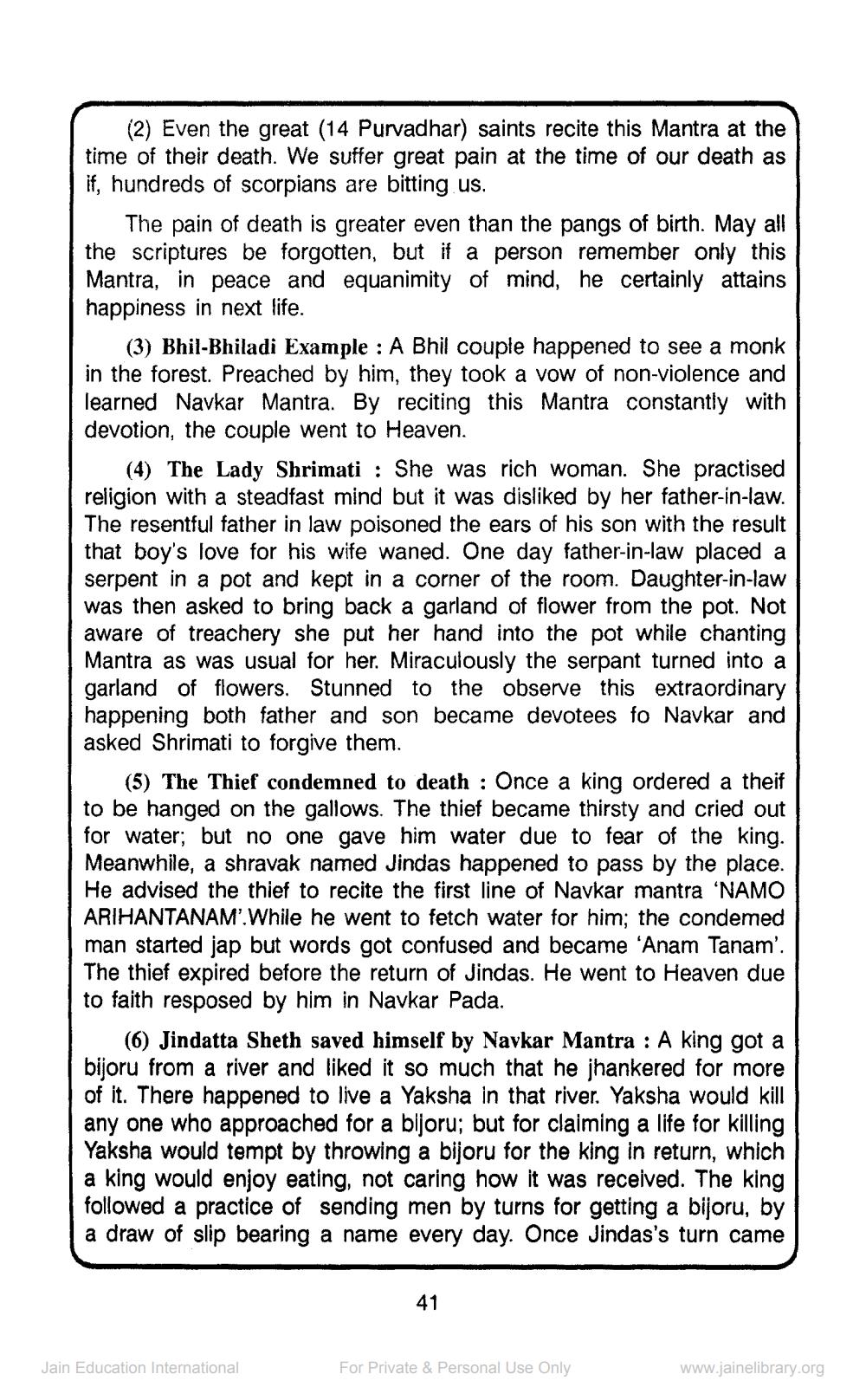________________
(2) Even the great (14 Purvadhar) saints recite this Mantra at the time of their death. We suffer great pain at the time of our death as if, hundreds of scorpians are bitting us.
The pain of death is greater even than the pangs of birth. May all the scriptures be forgotten, but if a person remember only this Mantra, in peace and equanimity of mind, he certainly attains happiness in next life.
(3) Bhil-Bhiladi Example: A Bhil couple happened to see a monk in the forest. Preached by him, they took a vow of non-violence and learned Navkar Mantra. By reciting this Mantra constantly with devotion, the couple went to Heaven.
(4) The Lady Shrimati: She was rich woman. She practised religion with a steadfast mind but it was disliked by her father-in-law. The resentful father in law poisoned the ears of his son with the result that boy's love for his wife waned. One day father-in-law placed a serpent in a pot and kept in a corner of the room. Daughter-in-law was then asked to bring back a garland of flower from the pot. Not aware of treachery she put her hand into the pot while chanting Mantra as was usual for her. Miraculously the serpant turned into a garland of flowers. Stunned to the observe this extraordinary happening both father and son became devotees fo Navkar and asked Shrimati to forgive them.
(5) The Thief condemned to death: Once a king ordered a theif to be hanged on the gallows. The thief became thirsty and cried out for water; but no one gave him water due to fear of the king. Meanwhile, a shravak named Jindas happened to pass by the place. He advised the thief to recite the first line of Navkar mantra 'NAMO ARIHANTANAM'. While he went to fetch water for him; the condemed man started jap but words got confused and became 'Anam Tanam'. The thief expired before the return of Jindas. He went to Heaven due to faith resposed by him in Navkar Pada.
(6) Jindatta Sheth saved himself by Navkar Mantra: A king got a bijoru from a river and liked it so much that he jhankered for more of it. There happened to live a Yaksha in that river. Yaksha would kill any one who approached for a bijoru; but for claiming a life for killing Yaksha would tempt by throwing a bijoru for the king in return, which a king would enjoy eating, not caring how it was received. The king followed a practice of sending men by turns for getting a bijoru, by a draw of slip bearing a name every day. Once Jindas's turn came
Jain Education International
41
For Private & Personal Use Only
www.jainelibrary.org




